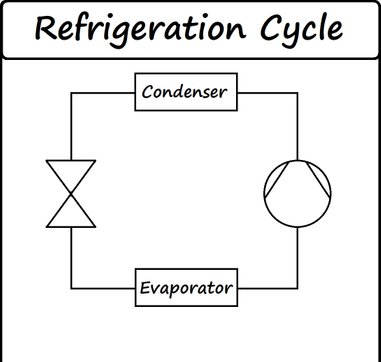A NEW
DISTILLATION METHOD
by
Frölunda Tech Holding AB
Refrigeration cycles
Undesired inert gases (non-condensables) sometimes come into refrigeration cycles and gather in the condenser.
(ISBN 978-0-08-100647-4, 5th ed, "Refrigeration, Air Conditioning and Heat Pumps", 11.15 - NON-CONDENSABLE GASES (p195))
The new distillation method requires:
- a pressure-sensitive azeotropic refrigerant (PSAR).
- inert gas.
Exploring refrigeration cycles using a PSAR could entail e.g. ...
- PSARs with condenser inert gas would exhibit glide properties.
A counter-current heat exchange between the external heat-sink medium and
the PSAR (glide properties), could mean a minimized ΔT.
A minimized ΔT -->
--> Less exergy loss.
--> Less compressor work needed.
= More energy efficient refrigeration cycle.
- Inert gases/non-condensables gather in condensers anyway. Making use of
this side-effect for a practical purpose (e.g. the above) could make sense.
- As the spectrum of acceptable refrigerants from time to time is revised
(global warming potential, ozone depletion potential, ...), giving
(future) pressure-sensitive azeotropic refrigerants (PSARs) a thought
could be of interest.
GET IN TOUCH!

